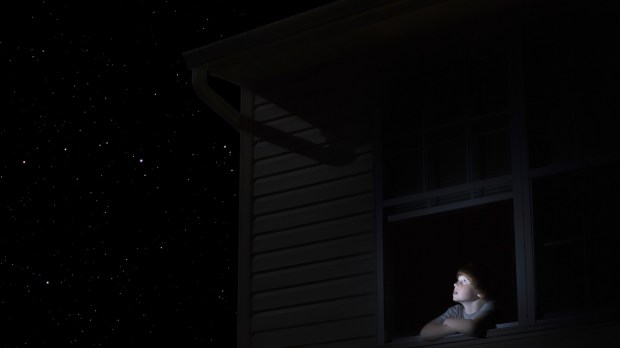Walt Whitman famously declared, “I contain multitudes.” Being the obscure poet that he was, no one is quite sure what he meant by that. After all, this is the same poem, titled “Song of Myself,” in which he boasts that he is, “untranslatable,” and his, “barbaric yawp” sounds over the roofs of the world. Typical grandiose writer-type stuff, there.
As difficult as it is to parse out the subtle shades of meaning in his words, it does seem clear that Whitman is trying to express the fundamental mystery of the human soul. Human beings are prone to behave in strange ways, with conflicted motivations and feelings that we ourselves don’t quite understand. Perhaps you, like me, have had the experience of doing something rash and immediately wondering why, digging in stubbornly during an argument even while you secretly know you’re wrong, or nursing an irrational grudge and later cannot believe why you felt so superior. It’s almost embarrassing, the way we contain these multitudes of untranslatable interior feelings.
It’s also what makes human beings so very special.
The human soul is capable of unfolding into infinite interior space.
The human soul is capable of unfolding into infinite interior space. We hold within ourselves all sorts of feelings and emotions, some way too big for us, banging around in our hearts, chipping and fracturing like sharp stones in a rock tumbler.
It isn’t just Whitman who is on record admitting inner conflict. Consider St. Thomas, who says to Jesus, “I believe, Lord, help thou my unbelief!” Or St. Augustine, who says, “O Lord, make me chaste but not yet.” These statements reveal hearts that are swirling with conflicting emotions and cross-purposed desires. They’re the statements of people who are stretching out towards transcendence and simultaneously shrinking back.
In my opinion, Doubting Thomas shouldn’t only be famous for doubt. He should also be admired for his faith. Augustine was a playboy, yes, but the tug of past pleasures rising up and trying to entrap him again makes his eventual (and lasting) chastity all the more heroic.
A few weeks ago at Sunday Mass I noticed that one of my parishioners, as she knelt to receive the Eucharist, did so with tears shining in her eyes. Later, I asked if they were happy tears or sad. She replied, “both.” I gave her a nod and left it at that. I totally understand.
One particular conflicted feeling that I regularly experience is nostalgia. Nostalgia means to feel homesick. I often have trouble leaving a place once I’ve spent time there. After converting to Catholicism, my family and I moved from Cape Cod to St. Louis. After that experience of packing up the moving van and watching the house in which we’d made so many memories slowly empty out, I vowed to never move cities again. It was too gut-wrenching. Even though I was excited about the next phase of life, I felt torn in two by the pain of what I was leaving behind. Every day, even though I wouldn’t change a thing, I mourn the life I left behind there – the place I first pastored a church, where our first children were born, where life-long friends were made.
I’m so prone to nostalgia that … I mourn the fact that the beer I just drank is now gone forever.
I’m so prone to nostalgia that I even mourn leaving the cabin in which I spend my annual spiritual retreat. I mourn the fact my children are growing up so fast. I mourn the fact that the beer I just drank is now gone forever.
As we move through life, we’re constantly leaving. At the same time, though, we can be excited, hopeful, and happy about what lies ahead. I love each day I get to spend on this earth more and more and have no desire to turn back the clock. That’s the trick with nostalgia; it’s like an arrow that wounds your heart but you’re grateful for the wound because it means you’ve experienced the feeling of home and you love it so much it hurts to leave it behind. What would life be without those moments?
I wonder if the human capacity for experiencing multitudes of conflicted emotions is a sign of the fact that we were not made for this world. We were made for Heaven. Even though Heaven somehow pours itself into our daily existence and crams itself within our hearts, we haven’t experienced Heaven yet as the fullest experience of home. We haven’t felt the full weight of its beauty.
This is why we feel sad that our children grow up but, at the same time, cheer them on as they go out to make their way in the world. It’s why we love traveling but desperately miss home while we’re gone, and miss the places to which we’ve traveled once we’re home. It’s why you might feel melancholic and sad at Mass and yet simultaneously feel endless gratitude and joy. It’s a glimpse of Heaven. A very real glimpse, but always fleeting.
The human soul is more capacious than galaxies. We contain multitudes but, within us, it’s all resolved into the miracle of being alive, of being physical creatures who walk the earth for a short time and then, somehow, find an eternal home. The human soul, filled with God’s grace, is a consuming fire, a burning bush that is never turned to ash, a melting forge from which emerges a sword stronger than steel, bright and tender, an artifact of life and death, a form full to overflowing. Inside of us, the sharp edges are broken away and polished into a precious jewel. I wouldn’t trade it for the world.


